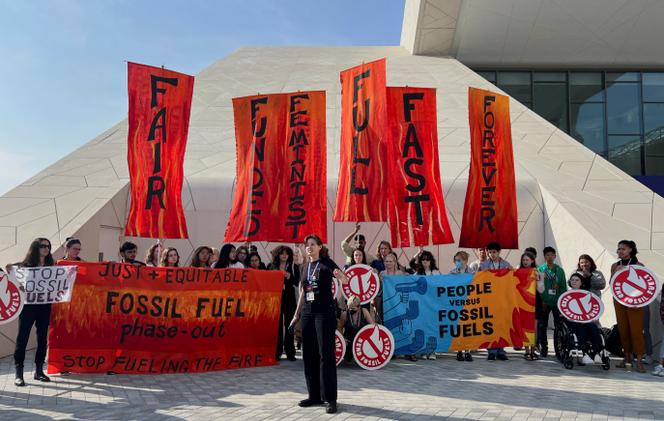


Will the diplomatic measures agreed upon in Dubai at COP28 be strong enough to accelerate climate action? No sooner had Sultan al-Jaber's gavel fallen on Wednesday, December 13, than many scientists hesitated on how to describe it. Some were glad a signal had been sent to the world on the urgency needed for climate action, while others pointed to the watered-down vocabulary that failed to bind states to action. "Climate diplomacy is often about taking small steps, but this one is bigger than the others," said Jean-Pascal van Ypersele, a climatologist and the former vice president of the Intergovernmental Panel on Climate Change (IPCC). "It's also a cultural battle, and this conference sends the message – to leaders, to industry, to the general public – that we need to move toward a fossil-free planet."
It is not yet possible to determine what influence this COP text will have, as it highlights, for the first time, the responsibility of fossil fuels on global warming. An extension of the Paris Agreement, the Global Stocktake negotiated in Dubai suffers from the same weakness: It is non-binding, and therefore relies on the goodwill of states. Its success will depend on the policies implemented in the coming months. "New financial sources, ambitious new climate plans and progress in terms of adaptation still need to be discussed beyond COP28 and before COP29," said Laurence Tubiana, the president of the European Climate Foundation and architect of the Paris Agreement.
In Paris in 2015, states committed to limiting global warming to "well below 2°C" and continuing action to limit the temperature increase to 1.5°C. Every five years, countries are required to submit their Nationally Determined Contributions (NDCs) in order to measure their efforts. In other words, they have to prove their action plan for complying with the text – 94% of the 195 parties sent their strategy to the UN. The next NDCs, presented by 2025 at the latest, will have to take into account the text agreed upon in Dubai. This means that governments will have to adapt their fossil fuel production and consumption trajectories.
The Paris Agreement may not have been enough – the world is still on a +2.7°C trajectory – but it wasn't useless either. According to the United Nations Environment Programme's Emissions Gap Report, published on November 20, greenhouse gas emissions would have been 16% above the 2019 level without the Paris Agreement, while emissions are currently heading to an increase of around 3%. A far cry from the -43% recommended by the IPCC.
You have 60% of this article left to read. The rest is for subscribers only.
